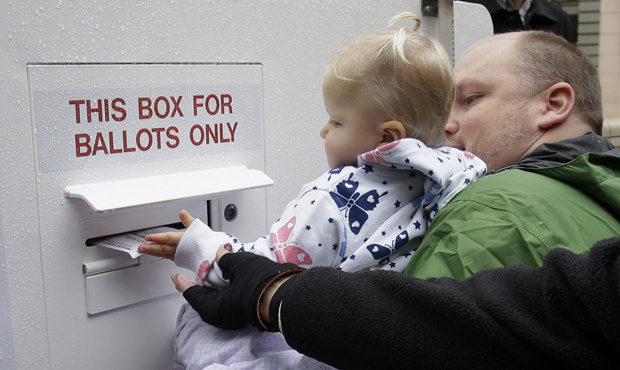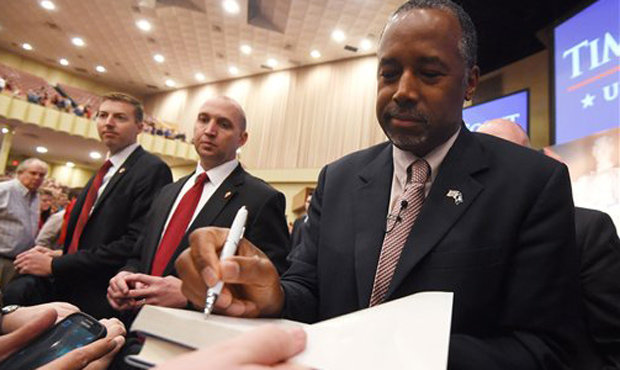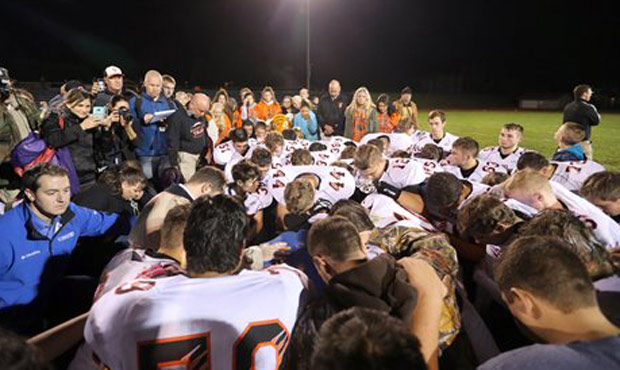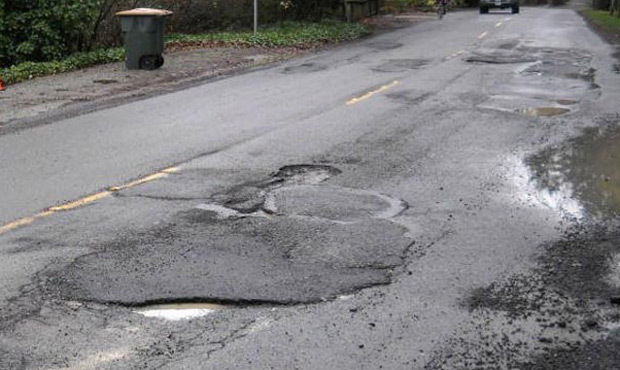Former Seattle Ethics Commission Chair calls I-122 flawed
Oct 21, 2015, 2:22 PM | Updated: 5:05 pm

If voters pass the I-122 initiative, the average Seattle voter would be allotted four $25 vouchers, which they could then give to the candidate of their choice. However, the program only budgets enough for up to 13 percent of those vouchers, or about 47,000 vouchers. (AP)
(AP)
The goal of Initiative 122 is to wipe out big money from politics in Seattle, but Robert Mahon, former chair of the Seattle Ethics and Elections Commission, said the initiative’s major flaw is that it will instead simply push money around to independent expenditures.
“What it is effectively doing is subsidizing the campaign spending of largely special interests,” Mahon told KTTH’s Dave Boze. “This is a system that is flawed in timing, it’s flawed in funding and it’s a recipe, I think, for subsidy of special interests in Seattle elections.”
The aim of the I-122 campaign, nicknamed the “honest elections” initiative, is to give power back to regular voters by creating a way to publicly finance city and mayoral elections.
Boze said he reached out to a proponent of the initiative, but didn’t get a response. Heather Weiner, with Honest Elections Seattle, told Jason Rantz that recent studies have shown that about half of the money candidates raise comes from the same .3 percent of Seattleites over and over again.
“Typically, these folks live in high-end neighborhoods with beautiful views and that’s where candidates spend most of their time — dialing for dollars and knocking on those doors, going to cocktail parties, and raising money from those folks,” she said. “If we level the playing field and say candidates can raise money from anybody, and that everybody has the ability to give candidates money, we think that will really improve our democracy.”
The initiative would place a $500 limit on the amount of money a person can donate to a candidate. The average Seattle voter would also be allotted four $25 vouchers, which they could then give to the candidate of their choice. However, the program only budgets enough for up to 13 percent of those vouchers, or about 47,000 vouchers.
“Everybody is paying for these vouchers, but only the first 47,000 voters are gonna have their vouchers funded, and it’s first come, first serve,” Mahon said. “So, if you’re a special interest who is looking to spend some money to support a candidate that you’d like, you’re gonna go out on Jan. 2, you’re gonna collect those vouchers and direct them to the direction of your candidate of choice. Which is probably gonna be a candidate who is either an incumbent or is well established with a particular organization. And that’s not healthy. And it’s a complete waste of taxpayer dollars.”
Although proponents estimate the system will cost $650,000 in administrative costs, Mahon thinks that number is on the low end.
“What that means is, for every $100 in vouchers that get used, $28 in administrative costs, which reduces, of course, the benefit that proponents say would flow to candidates and voters,” he said. “So, in other words, 47,000 of us are gonna get our vouchers cashed, the other 600,000 Seattle residents are gonna be paying for it.”
Mahon said the elections commission has been told that the measure would require three new employees. Proponents also designed it so it will eventually be turned into an electronic system.
“But of course, there’s no money in the budget to actually do that, and anybody who’s gone through an IT project — the notion that you could do that as cheaply as proponents claim, is just wishful thinking,” he said. “I suspect taxpayers are gonna be on the hook for further administrative costs.”
Boze asked Mahon whether there is actually a problem that needs to be addressed.
“No, I think the answer is there isn’t a problem,” he said. “It’s a solution in search of a problem.”













